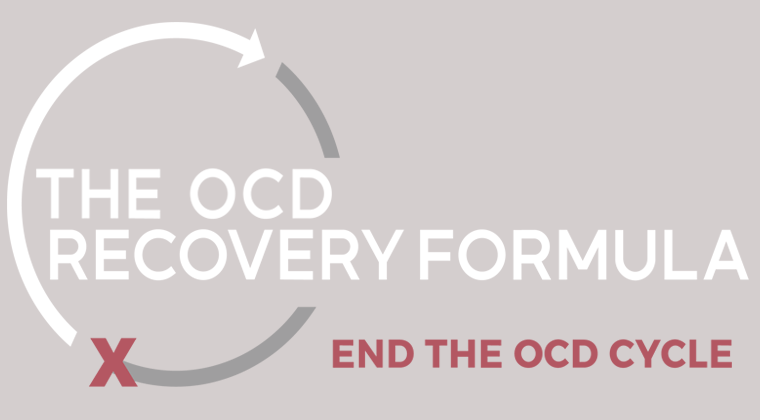If you suffer from OCD, you know that life can be a constant battle. The good news is that there is hope for recovery. In this blog post, we will discuss the different therapies, medications, and self-help tips that can help you achieve OCD recovery. We will also cover some of the common obstacles you may encounter along the way, and provide strategies for minimizing your risk of relapse. We hope that this information will be helpful to you on your journey to recovery!
Contents
Understanding OCD Recovery
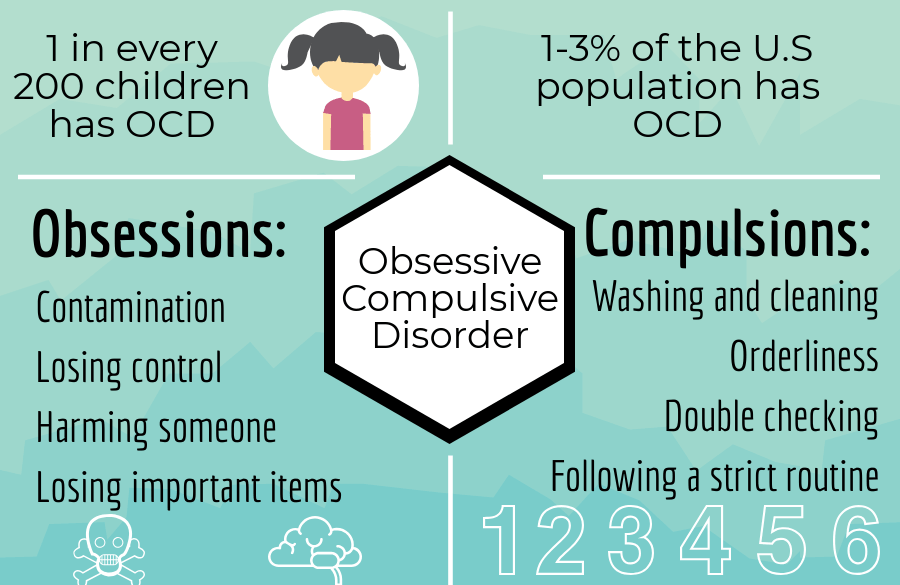
OCD recovery is the process of learning to manage one’s OCD so that it no longer interferes with daily functioning. It usually involves a combination of therapy, medication, and self-help.
How Long Does It Take To Recover From OCD
This is a difficult question to answer because everyone’s experience with OCD is different. In general, however, it is important to remember that OCD recovery is a gradual process. It may take weeks, months, or even years to reach a point where you feel like your OCD no longer controls your life.
For many people, OCD recovery can seem like an impossible dream. However, it is important to remember that recovery is possible. There are many people who have recovered from OCD and gone on to lead happy and fulfilling lives.
NOTE: There is no cure for OCD, but it is a treatable condition. With treatment, most people with OCD can learn to manage their symptoms and live productive lives.
Stages In OCD Recovery
There are generally three stages in OCD recovery:
- The first stage is called “containment.” This is when the person with OCD begins to learn how to manage their disorder. They may start to see a therapist and/or begin taking medication. They may also start to read books or look online for information about OCD.
- The second stage is called “stabilization.” This is when the person with OCD starts to see some improvement in their symptoms. They may still have bad days, but they are starting to feel more in control.
- The third stage is called “maintenance.” This is when the person with OCD has made significant progress and can keep their symptoms under control. They may still have occasional flare-ups, but they know how to manage them.
Why It Can Be Difficult
There are many reasons why it can be difficult to recover from OCD.
- It requires a lot of work and commitment. It is also difficult because the disorder can be very stubborn. Some people with OCD will never completely recover; however, most people will see a significant improvement in their symptoms.
- Another reason is that the symptoms of OCD can be very distressing. For example, someone with OCD may have frequent, intrusive thoughts about dirt and contamination. These thoughts can cause a great deal of anxiety and fear.
- Additionally, the compulsions that people with OCD perform can be time-consuming and disruptive to everyday life.
What You Need To Remember During Recovery
There are a few things that you need to remember during recovery.
- First, it is important to realize that OCD is a treatable condition. With treatment, most people with OCD can learn to manage their symptoms and live normal, productive lives.
- Second, recovery from OCD takes time. It is important to be patient and persistent in your treatment.
- Third, it is important to find a treatment that works for you. There is no one-size-fits-all treatment for OCD. What works for one person may not work for another.
- Forth, recovery is a process, not a goal. It is normal to have good days and bad days. You will make progress if you keep working at it. Moreover, you are not alone. Many people have recovered from OCD and there are many resources available to help you.
NOTE: Setbacks are part of recovery. If you have a setback, don’t give up. Just start again from where you left off.
Listing Treatment Methods For OCD Recovery
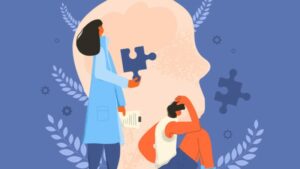
There are many different treatment methods for OCD recovery. Here is a list of some common ones:
- Therapies,
- Medication
- Self-help Tips
- Self-help Tools
However, self-help tips and self-help tools can be very helpful, but they have their limitations.
- For one thing, they are not a substitute for professional help. If you are struggling with OCD, it is important to see a therapist or psychiatrist.
- Additionally, self-help tips and tools can only do so much. They can help you to cope with your symptoms and make some progress, but they cannot cure OCD.
- Finally, self-help tips and tools are not always easy to follow. They may require a lot of effort and discipline.
Therapies For OCD Recovery
- Cognitive-behavioral therapy (CBT). CBT teaches people with OCD how to manage their thoughts and behaviors. It is very effective in reducing symptoms and helping people live normal, productive lives.
- Exposure and response prevention (ERP). It is another type of therapy that can be helpful for OCD recovery. ERP involves gradually exposing yourself to your triggers and learning to resist the urge to engage in compulsive behaviors.
- Other types of therapy that can be helpful include Acceptance and Commitment Therapy (ACT), and Dialectical Behavior Therapy (DBT).
Medication For OCD Recovery
Several types of medication can be used to treat OCD.
- Serotonin reuptake inhibitors (SRIs). SRIs work by increasing levels of serotonin in the brain. Serotonin is a chemical that plays a role in mood and anxiety.
- Antidepressant. Antidepressants can help to reduce the symptoms of OCD by affecting the levels of certain chemicals in the brain.
- Other types of medication that may be used include antipsychotics, anticonvulsants, and beta-blockers.
Self-help Tips For OCD Recovery
Several self-help tips can be useful for OCD recovery.
- Educate yourself about OCD. The more you know about OCD, the better equipped you will be to manage your symptoms.
- Develop a support system. This can include family, friends, or a support group for people with OCD. These people can provide you with emotional support and practical assistance.
- Develop a healthy lifestyle. Eating a balanced diet, getting enough exercise, and getting enough sleep are all important for managing OCD symptoms.
Foods That Help OCD Recovery
Certain foods can help with OCD recovery.
- Omega-three fatty acids. These are found in fish, such as salmon, tuna, and mackerel. They can also be found in flaxseed oil, chia seeds, and hemp seeds.
- Probiotics. Probiotics are live bacteria that are found in yogurt and other fermented foods. They can also be taken as supplements.
- Vitamin B12. This vitamin is found in meat, poultry, eggs, and dairy products. It can also be taken as a supplement.
Self-help Tools For OCD Recovery
Certain self-help tools can be useful for OCD recovery.
- Relaxation techniques. Relaxation techniques, such as deep breathing and progressive muscle relaxation, can help reduce anxiety and stress.
- Mindfulness meditation. This is a type of meditation that involves focusing on the present moment and accepting thoughts and feelings without judgment.
- Cognitive restructuring. This is a type of therapy that helps people identify and challenge their negative thoughts.
- Journaling can help you track your thoughts and behaviors. It may further help you identify your triggers.
- A support group can provide you with social support and allow you to share your experiences with others who understand what you are going through.
Predicting Obstacles In OCD Recovery
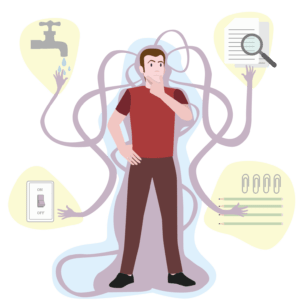
Several obstacles can be associated with OCD recovery.
- Relapse. A relapse is when your symptoms return after a period of improvement. If you have a relapse, it is important not to get discouraged. Just start again from where you left off. It is a common obstacle in OCD recovery. So, it is important to be aware of the signs of relapse and to have a plan in place to prevent it.
- Lack of progress. It is normal to have good days and bad days. It is important to be patient and persistent in your treatment. You will make progress if you keep working at it. However, if you feel like you are not making any progress, it is important to talk to your doctor or therapist.
- Treatment resistance. Some people with OCD do not respond well to treatment. If you are not seeing any improvement in your symptoms, it is important to talk to your doctor or therapist.
- Difficulties in implementing treatment methods. This can be due to several reasons, such as not having access to the right resources or not being able to stick to a treatment plan.
Statements That Can Help OCD Recovery
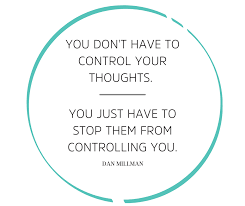
Certain statements can be helpful for OCD recovery.
- “I am not my OCD.” This statement can help you remember that your OCD does not define you as a person.
- “I will not let my OCD control me.” This statement can help you to take back control of your life.
- “Recovery is possible.” This statement can give you hope that you can and will recover from OCD.
- “Treatment works.” This statement can remind you that there are effective treatments available for OCD.
- “I am not alone.” This statement can remind you that others understand what you are going through.
Minimizing Potential Risk of Relapse

There are several things you can do to minimize the risk of relapse.
- First, make sure you have a solid support system in place. This can include family, friends, or a support group for people with OCD. These people can provide you with emotional support and practical assistance.
- Second, develop healthy coping mechanisms. This can include things like journaling, relaxation techniques, and exercise. They can be a good distraction or might help you to keep intrusive thoughts at bay.
- Third, be aware of your triggers. Triggers are things that can cause your OCD symptoms to flare up. If you know what your triggers are, you can avoid them or be prepared to deal with them if they do occur.
- Fourth, have a plan in place if you do experience a relapse. This plan should include things like who to contact for help and what steps to take to get back on track.
By following these tips, you can minimize the potential risk of relapse and increase your chances of success in OCD recovery.
Conclusion
OCD is a debilitating disorder that can cause a lot of distress. However, there is hope for recovery. With the right treatment and support, you can manage your symptoms and live a fulfilling life. Remember, you are not alone in this journey. Some people care about you and want to help you succeed. Reach out for help if you need it and believe in yourself. You can do this!
If you are looking for affordable Online OCD Counseling MantraCare can help: Book a trial OCD therapy session
